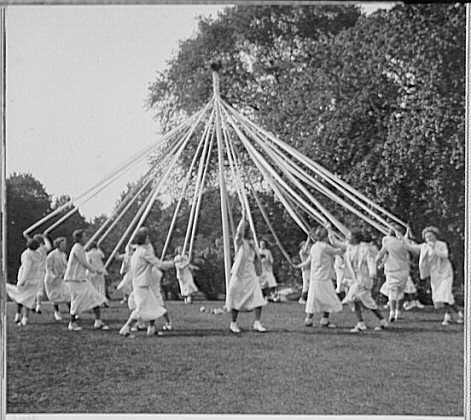May Day is an international holiday celebrated on May 1. In the US and many other countries May Day has a close connection to Labor day and International Worker's Day. Some European countries such as the UK associate May Day more with paganism and the ancient celebration of Beltane, a Gaelic festival.
A day for workers
Since the 1890s Mayday has been recognized as a day for workers and as a day of action and campaigning. In his Pamphlet, The History of May Day Alexander Trachtenberg (socialist publisher and writer) wrote:
[...]May First was set aside as a day upon which the workers of the world, organized in their political parties and trade unions, were to fight for the important political demand: the 8-hour day.
During the nineteenth century, American workers who were unhappy with long hours and dangerous conditions started to gather in unions such as the National Labor Union and The Knights of Labor. Word spread and the demand for an eight-hour working day grew across the globe.
A day of strikes
May 1 was chosen by unions and organizations to be an annual day of strikes. Between 1881-1884 approximately 150,000 people went on strike on May Day and as the movement became more popular that number increased. In 1885 the attendance was 250,000 people and the following year, 1886, approximately 600,000 people workers went on strike for the eight hour working day.
During one infamous strike in Chicago fighting broke out leading to the deaths of several people. This tragedy only added to the gathering momentum of the movement, and increased public and global awareness of the May Day strikes. This also led in 1890 to May Day being officially recognized as an international day for workers.
A day with ancient roots
Historically, May Day has a connection with nature, paganism, and the worship of nature and/or the sun. Many of the traditional May Day activities such as maypole dancing and morris dancing have origins in the worship of the sun or in ancient fertility rituals.

Although the maypole dance has European origins it can be found still being danced in many schools and communities across modern America.
Green root or red root?
These two opposing histories are sometimes referred to as the green root of paganism and nature, and the red root of labor and strike action. For this reason, there are many different ways to celebrate May Day such as parades organized by unions, and maypole dances, spring fairs, and picnics.
Most May Day festivals are organized to recognize both the significance of the fight for labor rights and the celebration of the season.